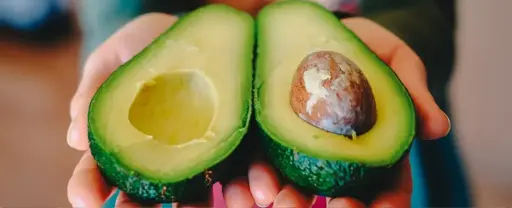The article seems to be shittily written in my opinion but I figure if you watch the video (about a minute) it will get the point across.
My question lies in, do you think this will benefit the health of the people moving forward, or do you fear it being weaponized to endorse or threaten companies to comply with the mention of Kennedy being tied to its future as mentioned in the end of the article
You know what would be way better than a symbol for “healthy” food would be requiring manufacturers to label food that fails to meet standards as “unhealthy.” Bonus points if you tax it to death so it’s no longer economically viable to sell garbage and label it “food”
Like, shit, the public perception is that I can’t afford healthy food anyway. But at least if the unhealthy food was also labelled it’d be easier to avoid
But that’s like putting “do no chew or crush” on a bottle of prescription pills. That’s how you know it’s the good shit.
Why is a Payday candy bar 1/3rd the price of a bag of peanuts with fewer peanuts than the Payday has?
Because peanuts on their own have to be visibly pleasing as peanuts or people won’t buy them. When you put them in a candy bar, you can use the crap looking ones.
Also, buying in bulk drastically decreases the price. If you had the purchasing power of Hershey, you could get your peanuts really cheap too. Join a food co-op as a starting point.
I don’t want more sin taxes. Sin taxes are anti choice. Subsidizing products that’s meet the healthy label I could agree with though
Edit: aka subsidizing the crops that are used to produce and possibly writing laws to ban the taxation on foods labeled healthy. Thus making such food in states like I live cost 10% less just by banning the state taxes on them before even getting to the subsidization on the crops. Shit, forcing us to move off corn to things like sugar cane would be great. Dense, the crop cycles are better, water usage is less and overall would be easier to manage. As in if we are going to kill ourselves with gas powered cars using 10% ethanol from corn… Why not use 10% from sugarcane which is easier to acquire and better for the population long term
Half of them are only cheap because of heavily subsidized corn being heavily processed into an inordinately cheap sugar substitute.
Taxes aren’t really raising prices so much as undoing the subsidies distorting the market.
So your saying the sales taxes are like tariffs, as they are being used to spread the cost to all purchasers without reguard to income making them harm lower and middle class people more, without ever having to raise taxes back to reasonable levels for the high income members of society. (3 million a year+)
I’m not saying anything about sales tax.
I’m saying that if you tax foods high in corn syrup, you’re just making it cost what it’s supposed to cost. You’re literally subsidizing the least healthy food at the moment.
Yeah tax on food is strange. It’s 0% in Florida for unprepared food, 10% in Tennessee.
In Florida corn syrup isn’t taxed at 0% it’s taxed below 0% because it’s already gone through layers of subsidies.
Weird to write an article that links to the page it’s mostly plagiarized from: https://www.fda.gov/food/nutrition-food-labeling-and-critical-foods/use-term-healthy-food-labeling
Not really.
If you cook from ingredients, you’ll usually be reasonably healthy. It’s not impossible to make healthy prepared foods, but it’s (comparatively) expensive enough that that, not awareness, is the main limitation.
It is harder to cook healthy foods nowadays than it was even 40 years ago because commercial farming has expedited the growth cycles of plants and animals to the point where they simply cannot process the nutrition available from the environment the way that they used to.
If you want to eat truly healthy, you basically have to grow the food yourself.
Since that is completely unreasonable for the grand majority of the modern world, your goal should be to try to eat as healthily as you can. Cooking from scratch and not over cooking your food are very good places to start.
I used to believe all that kind of stuff. Our diets are so much more diverse and food more available than ever. We have fresh produce in the winter, and our meat is farmed instead of scarce and hunted. We understand things like needing vitamin C daily, either fortifying rice or not killing / stripping the b-vitamins on it. We can get far more nutrients than we need from food which is why people can eat so many empty calories and be fine.
-Was sick for years and in a lot of pain because of silicon dioxide (an additive commonly found in vitamins).
Bad nutrition both in the comments and the FDA. :-\
Care to elaborate on what you are referencing?
Just focusing on the article and FDA statements - it reminds me of a chapter in Colin Campbell’s book, The China Study. He was part of some of the committees that were involved in drafting dietary guidelines, which ended up including the now-infamous idea that fats should be reduced. In his own book he lamented how it turned out, but from his perspective it had more to do with the over-emphasis on specific nutrients (like fat, but it’s also worth noting that these early guidelines did contribute to the rise of the supplements industry as well).
When these guidelines are made, what they become is essentially a hodgepodge of ideas that try to placate both nutritional professionals, as well as industry lobbyists (who are always involved in these committes and aggressively try to push their own recommendations).
So in the case of these new guidelines what I think we’re seeing here is more of the same. In nutritional science there is a scientific consensus on which overall dietary pattern is considered most appropriate for the wellbeing of the general population (which is to say it currently has the largest body of evidence to support it’s benefits and efficacy). That would be the Mediterranean diet, as described by Ancel Keys. Contrary to popular belief this is not a diet that’s all about eating chicken all the time and guzzling olive oil by the gallon. “This approach emphasizes a plant-based diet, focusing on unprocessed cereals, legumes, vegetables, and fruits. It also includes moderate consumption of fish, dairy products (mostly cheese and yogurt), and a low amount of red meat.”
(As a sidenote recent research on a new “green Mediterranean diet” variant has been demonstrating that these dietary patterns produce even greater health benefits when the plant-based side of the diet is emphasized even more).
If you squint hard enough you can still see the bones of the Mediterranean guidelines in these new FDA guidelines. But now where things get self-contradicting is their statements on saturated fat. To be clear, no matter what any half-baked health influencer spouts, the evidence on saturated fat is so voluminous and thorough it could not be more concrete. Saturated fat absolutely increases your risk of cardiovascular disease, and should strictly be limited. The recommendations from Harvard:
“The American Heart Association advises a limit of 5% to 6% of your daily calories, while the Dietary Guidelines for Americans says 10% is fine. Registered dietitian Kathy McManus, who directs the Department of Nutrition at Harvard-affiliated Brigham and Women’s Hospital, suggests a happy medium of 7%. That happens to be the typical amount of saturated fat in the heart-friendly Mediterranean-style diet.”
And yet in these new guidelines you get misleading recommendations to, on the one hand, limit saturated fat, while on the other hand, they’re now going to promote potentially high sources of saturated fats as “healthy”; those being dairy, eggs, and nuts and seeds.
Some things are a step in the right direction. The emphasis on whole foods is good. But I think ultimately it’s going to lead to more confusion, and it’s dubious as to how helpful it’s going to be. It also still makes the mistake of overemphasizing single nutrients rather than overall dietary patterns.
And I dunno, it probably doesn’t matter. Unless we can truly eliminate the toxic food environment (that is, the absolute cornucopia of harmful “foods” that completely dominate every grocery store shelf and other food menus, oftentimes being the most deceptively inexpensive choices), then that’s what the vast majority of people are going to keep choosing.





